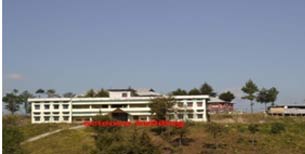1. KOHIMA SCIENCE COLLEGE (Autonomous), JOTSOMA, KOHIMA (NAAC Accredited “B++” Grade):
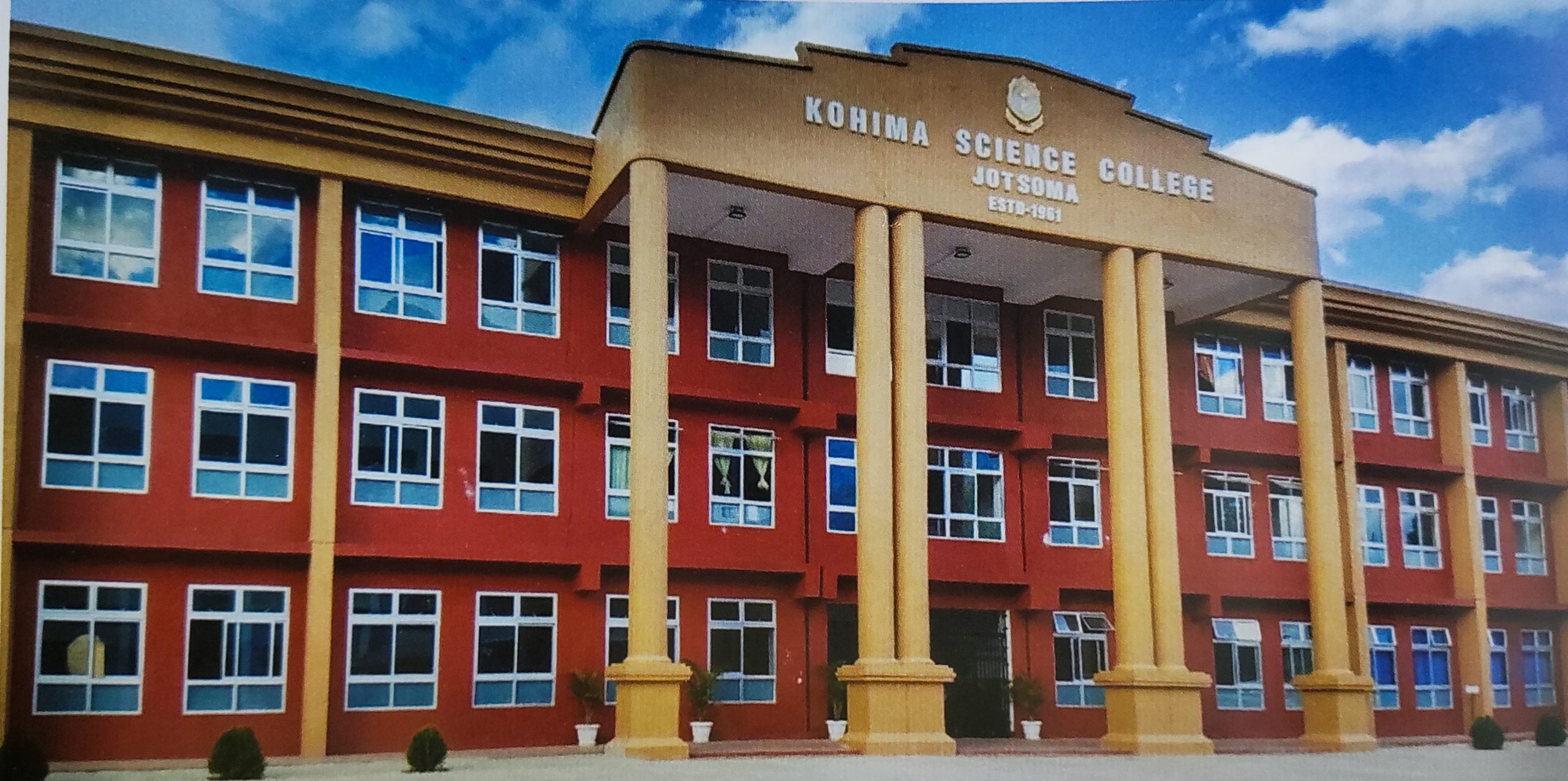 Kohima Science College, Jotsoma, established in 1961 with science education in higher secondary and under graduate levels, has grown at a healthy rate and is now recognised as one of the State’s finest colleges. Now, 57 years after its founding, and an enviable Grade A accreditation in 2011 (1st cycle), 2017 (2nd cycle) and 2022 (3rd cycle) with CGPA of 3.05, 3.42 and 2.91 respectively by the UGC National Assessment and Accreditation Council. Kohima Science College has become Nagaland’s only autonomous Government P.G. College. The College offers 12 Undergraduate Programmes in a broad spectrum of science subjects and Humanities. It offers Master’s Programme in Anthropology, Botany, Chemistry, Geology, Mathematics, Physics and Zoology. The College also has three research laboratories. The College aspires to engage in not only improving the standards of science education in the State but also generate knowledge that is value-based. Kohima Science College has been successively affiliated to Guwahati University, North-Eastern Hill University and Nagaland University. The College is striving to fulfil its mission in the following identified areas:
Kohima Science College, Jotsoma, established in 1961 with science education in higher secondary and under graduate levels, has grown at a healthy rate and is now recognised as one of the State’s finest colleges. Now, 57 years after its founding, and an enviable Grade A accreditation in 2011 (1st cycle), 2017 (2nd cycle) and 2022 (3rd cycle) with CGPA of 3.05, 3.42 and 2.91 respectively by the UGC National Assessment and Accreditation Council. Kohima Science College has become Nagaland’s only autonomous Government P.G. College. The College offers 12 Undergraduate Programmes in a broad spectrum of science subjects and Humanities. It offers Master’s Programme in Anthropology, Botany, Chemistry, Geology, Mathematics, Physics and Zoology. The College also has three research laboratories. The College aspires to engage in not only improving the standards of science education in the State but also generate knowledge that is value-based. Kohima Science College has been successively affiliated to Guwahati University, North-Eastern Hill University and Nagaland University. The College is striving to fulfil its mission in the following identified areas:
- To utilize academic autonomy to develop and maintain high academic standards in accordance with the national framework and changing academic and social benchmarks.
- To be an enabling agency for the students to develop their potentials to the fullest and become productive and responsible citizens of the contemporary society and the country.
- To promote and strengthen skill based courses in the curriculum.
- To promote student-centric technology enabled teaching and learning along with the core conventional
- To promote original and quality research with an emphasis on Inter-disciplinary approach.
- To encourage and support the faculty members to enhance their academic proficiency in accordance with the contemporary benchmarks.
- To encourage a sense of teamwork and community service amongst the students and faculty members.
- To foster and institutionalize innovative and best practices in the workplace by using transparent and decentralized working environment.
2. FAZL ALI COLLEGE, MOKOKCHUNG (NAAC Accredited “A” Grade)
 Fazl Ali College was established on 8th September 1959. It is located about 5 kms away from Mokokchung Town. It has a campus area of about 85 acres. The College was set up with the vision and foresight of a few educated men and women who felt the need for a liberal education to enlighten the masses. Nagaland, as a state, did not exist then but the region was under the State of Assam as the Naga Hills District and the insurgency movement then taking place led many young people to boycott schools. However, Fazl Ali College survived these turmoils and with a donation of ₹1 (rupees one) from every household in Mokokchung District and the help of the then Governor, Sir Syed Fazl Ali, the College came into being. When the State of Nagaland was formed in 1963, the Government took over the College as a fully funded Government Institution with retrospective effect from 1st March 1962 and the College has not looked back since then. In 1983, this became a reality with the addition of the Science stream. Today, the College has 16 Departments(English, Philosophy, Sociology, Economics, Political Science, History, Education, Functional English, Geography, Mathematics, Physics, Chemistry, Zoology, Botany, Computer Science and Ao) and is an “A” graded college under NAAC. The motto of the College is “Academia Nulli Secundus” (Second to None in Academics)
Fazl Ali College was established on 8th September 1959. It is located about 5 kms away from Mokokchung Town. It has a campus area of about 85 acres. The College was set up with the vision and foresight of a few educated men and women who felt the need for a liberal education to enlighten the masses. Nagaland, as a state, did not exist then but the region was under the State of Assam as the Naga Hills District and the insurgency movement then taking place led many young people to boycott schools. However, Fazl Ali College survived these turmoils and with a donation of ₹1 (rupees one) from every household in Mokokchung District and the help of the then Governor, Sir Syed Fazl Ali, the College came into being. When the State of Nagaland was formed in 1963, the Government took over the College as a fully funded Government Institution with retrospective effect from 1st March 1962 and the College has not looked back since then. In 1983, this became a reality with the addition of the Science stream. Today, the College has 16 Departments(English, Philosophy, Sociology, Economics, Political Science, History, Education, Functional English, Geography, Mathematics, Physics, Chemistry, Zoology, Botany, Computer Science and Ao) and is an “A” graded college under NAAC. The motto of the College is “Academia Nulli Secundus” (Second to None in Academics)
3. DIMAPUR GOVT COLLEGE, DIMAPUR(NAAC Accredited “B+” Grade)
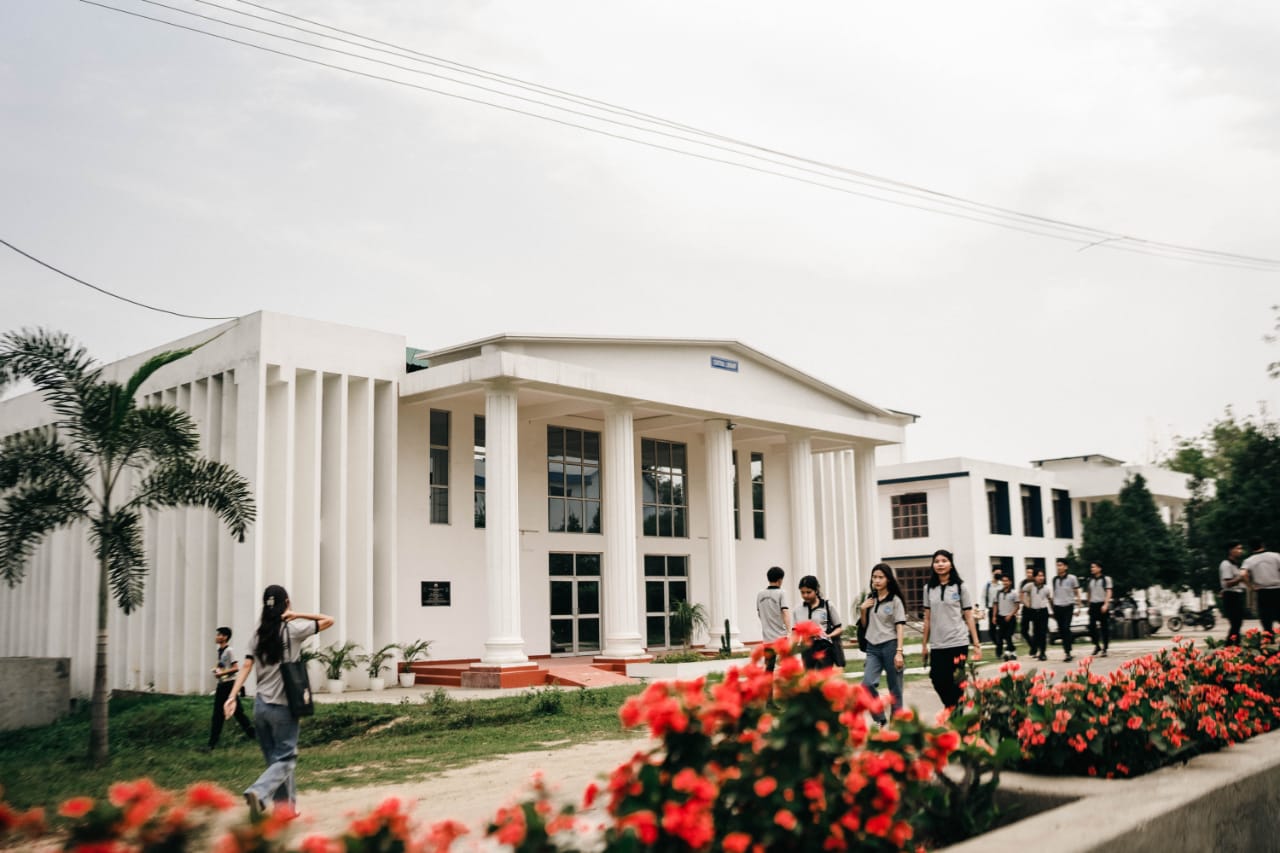 Dimapur College was started at the initiative of some prominent citizens of the town to provide an opportunity for higher studies to those who could not afford to go outside Dimapur/Nagaland. It was established in the year 1966 and was affiliated to Guwahati University, Guwahati, upto Degree Pass Course in Arts and Commerce. Mr. N. Kithan, the then Education Minister of Nagaland, inaugurated it on 25th of July 1966. The College was under the North Eastern Hill University (NEHU) Shillong, from 1974 to 1993. It is now affiliated to the Nagaland University, which was established in July 1994. The College was taken over by the Government of Nagaland on 1st of February 1989 and renamed it as Dimapur Government College.
Dimapur College was started at the initiative of some prominent citizens of the town to provide an opportunity for higher studies to those who could not afford to go outside Dimapur/Nagaland. It was established in the year 1966 and was affiliated to Guwahati University, Guwahati, upto Degree Pass Course in Arts and Commerce. Mr. N. Kithan, the then Education Minister of Nagaland, inaugurated it on 25th of July 1966. The College was under the North Eastern Hill University (NEHU) Shillong, from 1974 to 1993. It is now affiliated to the Nagaland University, which was established in July 1994. The College was taken over by the Government of Nagaland on 1st of February 1989 and renamed it as Dimapur Government College.
4. KOHIMA COLLEGE, KOHIMA (NAAC Accredited “B++” Grade)
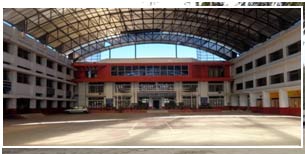 Kohima College, located in the scenic hillock of Kruoliezou, Kohima, was established on the 9 August 1967. This educational institute holds the distinction of being the first private college offering higher education in the branch of Humanities for the first time in Kohima. The College owes its existence to the founding members; Dr. Neilhouzhü Kire, Dr. Satuo Sekhose, Mr. Vibeilie Solo and Mr. Vilalhoulie Belho, four far sighted individuals from Kohima Village, who shared a common concern which was the need for an Academic Institution in the capital. The College is NAAC Accredited and is recognised under section 2(f) & 12(B) under UGC Act 1956.
Kohima College, located in the scenic hillock of Kruoliezou, Kohima, was established on the 9 August 1967. This educational institute holds the distinction of being the first private college offering higher education in the branch of Humanities for the first time in Kohima. The College owes its existence to the founding members; Dr. Neilhouzhü Kire, Dr. Satuo Sekhose, Mr. Vibeilie Solo and Mr. Vilalhoulie Belho, four far sighted individuals from Kohima Village, who shared a common concern which was the need for an Academic Institution in the capital. The College is NAAC Accredited and is recognised under section 2(f) & 12(B) under UGC Act 1956.
5. PHEK GOVT COLLEGE, PHEK (NAAC Accredited “B” Grade)
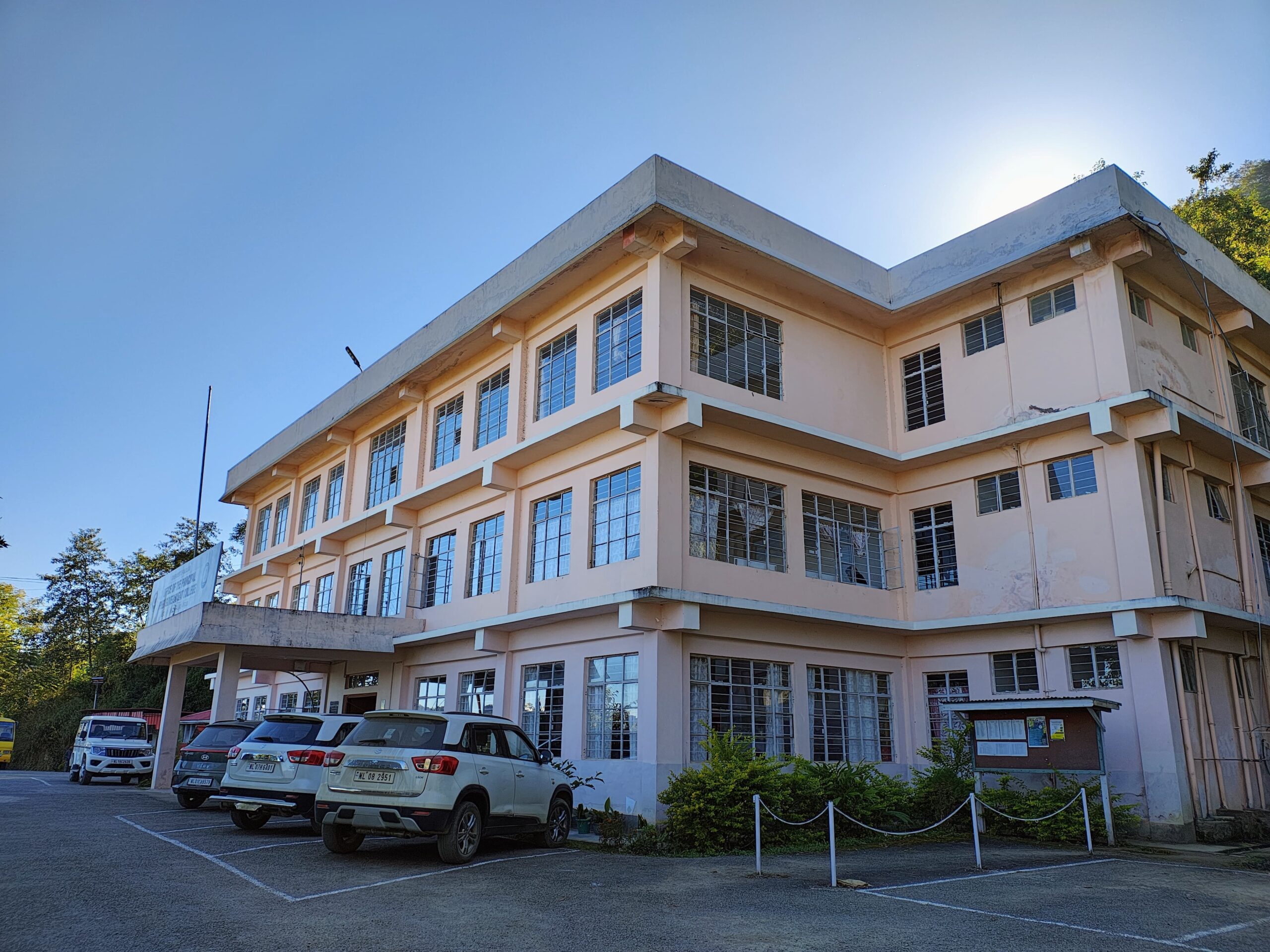 With the vision to provide higher education to students in this far flung and remote region of the state, Phek College was established on 28th July 1981. The College became affiliated to the North Eastern Hill University (NEHU) in 1983, and presently affiliated to Nagaland University. Initially, the College offered courses only up to the Pre-University level and in the year 1994 B.A. General Course and Honours courses in Political Science, Education and History were introduced. Phek College was taken over by the Government of Nagaland on 1st February 1990. The College shifted to the new campus with a sprawling area of 38 acres land surrounded by lush greenery on 29th October 2002. The nomenclature of the College was changed from ‘Phek College’ to ‘Phek Government College’ in September 2004. Science stream was introduced at Higher Secondary level in 2005. The College started offering B. Sc. Honours and B.A. Honours courses in English and Economics from July 2013. In 2015, the Higher Secondary section (Arts & Science) were detached from the College. The college also hosts IGNOU Study Centre in the campus. The College is NAAC accredited with B Grade in 2019 (First cycle).The college is granted permanent affiliation by the Nagaland University, Lumami on 26th August 2022. And on 6th April 2023, the college is included in the list of colleges prepared under section 12B of the UGC Act, 1956 and declared fit to receive Central Assistance under 12B by the University Grant Commission.
With the vision to provide higher education to students in this far flung and remote region of the state, Phek College was established on 28th July 1981. The College became affiliated to the North Eastern Hill University (NEHU) in 1983, and presently affiliated to Nagaland University. Initially, the College offered courses only up to the Pre-University level and in the year 1994 B.A. General Course and Honours courses in Political Science, Education and History were introduced. Phek College was taken over by the Government of Nagaland on 1st February 1990. The College shifted to the new campus with a sprawling area of 38 acres land surrounded by lush greenery on 29th October 2002. The nomenclature of the College was changed from ‘Phek College’ to ‘Phek Government College’ in September 2004. Science stream was introduced at Higher Secondary level in 2005. The College started offering B. Sc. Honours and B.A. Honours courses in English and Economics from July 2013. In 2015, the Higher Secondary section (Arts & Science) were detached from the College. The college also hosts IGNOU Study Centre in the campus. The College is NAAC accredited with B Grade in 2019 (First cycle).The college is granted permanent affiliation by the Nagaland University, Lumami on 26th August 2022. And on 6th April 2023, the college is included in the list of colleges prepared under section 12B of the UGC Act, 1956 and declared fit to receive Central Assistance under 12B by the University Grant Commission.
6. TIYI COLLEGE, WOKHA(NAAC Accredited “C” Grade)
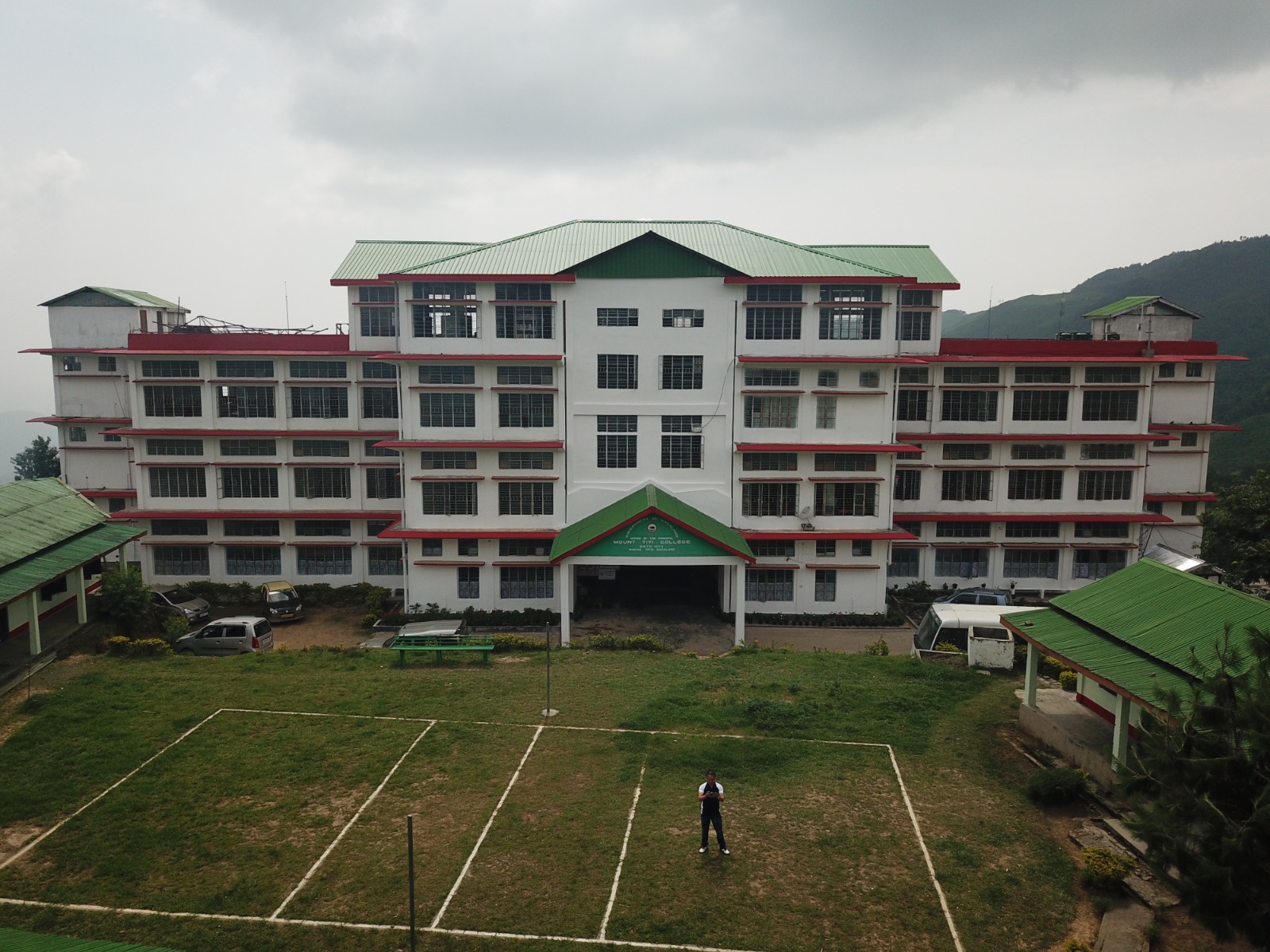 Mount Tiyi College is an institute of higher learning established in 1974 at Wokha, Nagaland. The College initially provided Pre-University course under North Eastern Hill University (NEHU) and later upgraded to Degree Level in 1979. It was taken over by the State Government in 1987 and has been affiliated to Nagaland University since 1994. The College is registered under section 12(b) and 2 (f) of the UGC Act, 1956. The College with its motto ‘Surge Et Luce’ or ‘Rise and Shine’ endeavours to serve, inspire and empower the young minds. The Institution is committed to educate students from all backgrounds, help them to explore possibilities, advance knowledge and engage them in self and societal growth.
Mount Tiyi College is an institute of higher learning established in 1974 at Wokha, Nagaland. The College initially provided Pre-University course under North Eastern Hill University (NEHU) and later upgraded to Degree Level in 1979. It was taken over by the State Government in 1987 and has been affiliated to Nagaland University since 1994. The College is registered under section 12(b) and 2 (f) of the UGC Act, 1956. The College with its motto ‘Surge Et Luce’ or ‘Rise and Shine’ endeavours to serve, inspire and empower the young minds. The Institution is committed to educate students from all backgrounds, help them to explore possibilities, advance knowledge and engage them in self and societal growth.
7. ZUNHEBOTO GOVT COLLEGE, ZUNHEBOTO (NAAC Accredited “B” Grade)
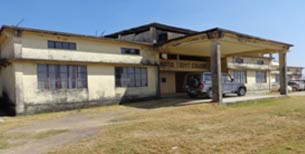 Zunheboto Government College was established as a private college on 21st of July 1980. It was sponsored and managed by Sümi Hoho. The first academic session began in 1980. It was formally taken over by the Government of Nagaland and inaugurated as a Government College in 1986. When the Nagaland University came into being in 1994, the college was affiliated under N.U. (Nagaland University) as one of the nine Govt. Colleges in the state. Emerging challenges of the time do bring us responsibility on education, especially Higher Education, quality and comprehensive adaptation of higher education is a natural demand of the hour. Hence, the college was assessed by the National Assessment and Accreditation Council (NAAC) and awarded ‘B’ Grade in 2020, recognized by University Grants Commission under 2F & 12B. During the Current Academic year (2023-2024) the lone Degree College (Arts) in the District has an enrolment of 562 students and Dr. K. Kalito Chishi is the present Principal of Zunheboto Govt. College.
Zunheboto Government College was established as a private college on 21st of July 1980. It was sponsored and managed by Sümi Hoho. The first academic session began in 1980. It was formally taken over by the Government of Nagaland and inaugurated as a Government College in 1986. When the Nagaland University came into being in 1994, the college was affiliated under N.U. (Nagaland University) as one of the nine Govt. Colleges in the state. Emerging challenges of the time do bring us responsibility on education, especially Higher Education, quality and comprehensive adaptation of higher education is a natural demand of the hour. Hence, the college was assessed by the National Assessment and Accreditation Council (NAAC) and awarded ‘B’ Grade in 2020, recognized by University Grants Commission under 2F & 12B. During the Current Academic year (2023-2024) the lone Degree College (Arts) in the District has an enrolment of 562 students and Dr. K. Kalito Chishi is the present Principal of Zunheboto Govt. College.
8. WANGKHAO COLLEGE, MON (NAAC Accredited “B+” Grade)
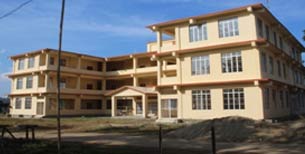 Wangkhao Government College is an Arts College located in Mon town under Mon district of Nagaland. The College offers Undergraduate B.A. Degree Course in Economics, Education, English, History, Political Science with Honours and B.A. General in Sociology. The College is NAAC assessed with a Grade of B+ in its First Cycle of Assessment and Accreditation.
Wangkhao Government College is an Arts College located in Mon town under Mon district of Nagaland. The College offers Undergraduate B.A. Degree Course in Economics, Education, English, History, Political Science with Honours and B.A. General in Sociology. The College is NAAC assessed with a Grade of B+ in its First Cycle of Assessment and Accreditation.
9. SAO CHANG COLLEGE, TUENSANG (NAAC Accredited “C” Grade)
Sao Chang College is named after Lt. H. Sao Chang, former Minister of Transport & Communication and PHED, Government of Nagaland. The cherished aspiration for higher education of the people of Tuensang District saw its light with a humble beginning christened as “Tuensang Night College” (Arts) in the year 1975 at a designated temporary building in Tuensang Town. To accommodate the increasing enrollment of students seeking for higher education within the district, the college was elevated to a regular day-shift college. Subsequently the college was taken over by the Government of Nagaland in April 1983. Science stream was later introduced in 2005. Shifted in the year 1996, the college now has its own permanent campus at a distance of about 9 Kilometres away from the town. Located amidst splendid and lofty mountain ranges and a pervading atmosphere of serenity, the college is ideal and conducive to be a centre of higher learning. The College is co-educational. It imparts Undergraduate Programmes in Arts and Science stream as per provision of NEP-2020. It is affiliated to the Nagaland University.
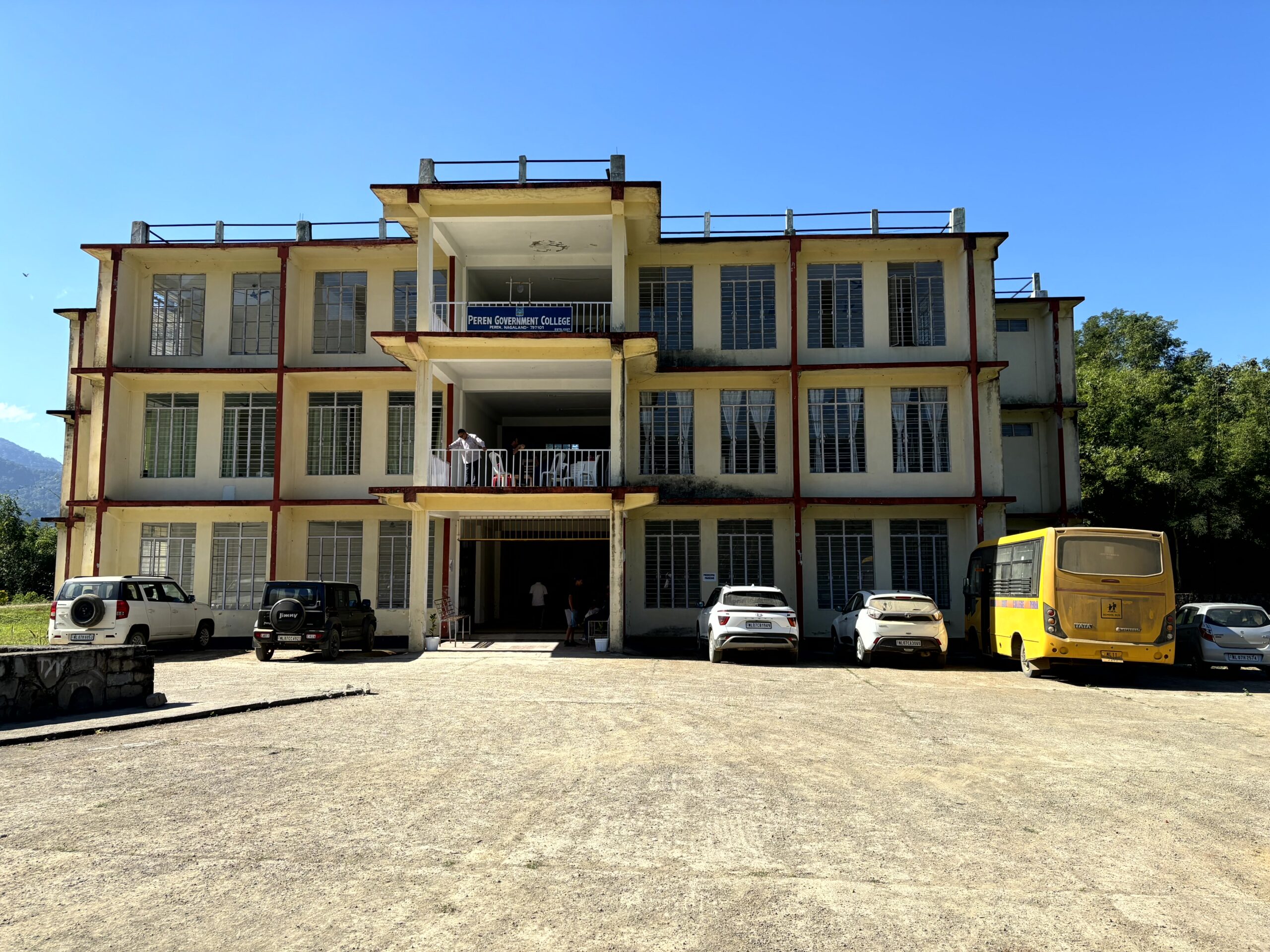 Peren Government College (PGC) was established as Peren College on April 13, 1987, in the middle of Peren Town by a group of visionary leaders and officers from the town. After 19 years of hard work and dedication of the people, the government of Nagaland recognised and took over the ownership as one of the government colleges in Nagaland. The College is provisionally affiliated to Nagaland University and is recognised by UGC under Section 2(f) of the UGC Act 1956. The College has a permanent new campus completed in almost all respect at New Peren district headquarters and is planning to shift there soon. The College is yet to be assessed by NAAC as it is currently run on a temporary campus. The college has started implementing the NEP 2020 starting from July 2023. Currently, there are three different systems running (Old Course for the 5th Semester, CBCS for the 3rd Semester, and Four Years Undergraduate Program for the 1st Semester).
Peren Government College (PGC) was established as Peren College on April 13, 1987, in the middle of Peren Town by a group of visionary leaders and officers from the town. After 19 years of hard work and dedication of the people, the government of Nagaland recognised and took over the ownership as one of the government colleges in Nagaland. The College is provisionally affiliated to Nagaland University and is recognised by UGC under Section 2(f) of the UGC Act 1956. The College has a permanent new campus completed in almost all respect at New Peren district headquarters and is planning to shift there soon. The College is yet to be assessed by NAAC as it is currently run on a temporary campus. The college has started implementing the NEP 2020 starting from July 2023. Currently, there are three different systems running (Old Course for the 5th Semester, CBCS for the 3rd Semester, and Four Years Undergraduate Program for the 1st Semester).
11. YINGLI COLLEGE, LONGLENG (NAAC Accredited “B+” Grade)
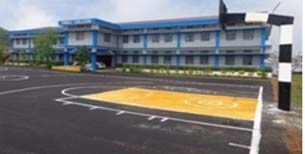 Yingli College is the only Higher Education Institute of Longleng District. It was established by the Association of Phom Graduates and Officer (APGO) on 09 September, 1992. In the beginning, the college was functioning at the Old ADC Office as the academic building and the Sub-Divisional Agri Office building as Lecturers’ hostel. The college started with PU under North Eastern Hill University, Shillong and the undergraduate course was introduced in 1995 when college came under Nagaland University. Presently, the college offers Major courses in Political Science, History, Economics,
Yingli College is the only Higher Education Institute of Longleng District. It was established by the Association of Phom Graduates and Officer (APGO) on 09 September, 1992. In the beginning, the college was functioning at the Old ADC Office as the academic building and the Sub-Divisional Agri Office building as Lecturers’ hostel. The college started with PU under North Eastern Hill University, Shillong and the undergraduate course was introduced in 1995 when college came under Nagaland University. Presently, the college offers Major courses in Political Science, History, Economics,
Education, English and Sociology. The college was shifted from Old ADC Colony (Leinak ward) to the permanent campus, which is now located in a sprawling area of 52.47 acres of land donated by the Bhumnyu Village Council at Longongkang Campus, 2 kilometres away from Longleng district headquarters. The Government of Nagaland took over the college with effect from February 01, 2006. The college is permanently affiliated to Nagaland University and recognized by the University Grant Commission (UGC). The College hosts National Institute of Electronic and Information Technology (NIELIT) and the Indira Gandhi National Open University (IGNOU) centre.
12. ZISAJI PRESIDENCY COLLEGE, KIPHIRE (NAAC Accredited “B” Grade)
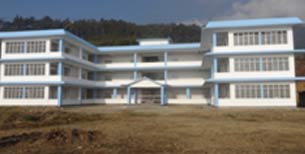 Zisaji Presidency College is a co-educational institution established on 10th July 1997 and is affiliated to Nagaland University. The College is located at Alikhong, 3 Kms away from Kiphire town. It still remains the sole institute in Kiphire district bordering Myanmar for the cause of higher education. At present the College is offering Undergraduate programme in Arts stream besides the certificate course in Computer. The College offer honours courses in Economics, English, Education, History and Political Science. The College also offers skill development programmes and workshops to the students. The College provide free, liberal and healthy competitive environment to help the students excel in their studies. Over the years the College has gradually built up academic and infrastructural facilities and a student friendly environment to make the college days memorable for the students. The College got permanent affiliation during April 2022 and is NAAC accredited with Grade –B.
Zisaji Presidency College is a co-educational institution established on 10th July 1997 and is affiliated to Nagaland University. The College is located at Alikhong, 3 Kms away from Kiphire town. It still remains the sole institute in Kiphire district bordering Myanmar for the cause of higher education. At present the College is offering Undergraduate programme in Arts stream besides the certificate course in Computer. The College offer honours courses in Economics, English, Education, History and Political Science. The College also offers skill development programmes and workshops to the students. The College provide free, liberal and healthy competitive environment to help the students excel in their studies. Over the years the College has gradually built up academic and infrastructural facilities and a student friendly environment to make the college days memorable for the students. The College got permanent affiliation during April 2022 and is NAAC accredited with Grade –B.
13. PFUTSERO GOVT COLLEGE, PFUTSERO (NAAC Accredited “B” Grade)
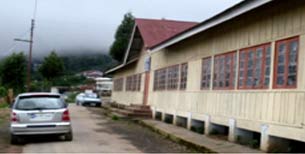 Located at the highest altitude town and the coldest inhabited place in Nagaland, Pfutsero Government College is one of the acclaimed coeducational institutes under the Department of Higher Education, Nagaland offering undergraduate degree course in Arts Stream. Established in 1982, the College was taken over by the Government of Nagaland in the year 2009 and was granted permanent affiliation to Nagaland University on 11th October 2022.The College has been NAAC Assessed and Accredited B Grade in the year 2019 and is in preparation for the second cycle of NAAC Peer Team visit due on October 2024. The College has 39 teaching staff, 19 ministerial staff and the enrolment of students for the current academic session stands at 345.
Located at the highest altitude town and the coldest inhabited place in Nagaland, Pfutsero Government College is one of the acclaimed coeducational institutes under the Department of Higher Education, Nagaland offering undergraduate degree course in Arts Stream. Established in 1982, the College was taken over by the Government of Nagaland in the year 2009 and was granted permanent affiliation to Nagaland University on 11th October 2022.The College has been NAAC Assessed and Accredited B Grade in the year 2019 and is in preparation for the second cycle of NAAC Peer Team visit due on October 2024. The College has 39 teaching staff, 19 ministerial staff and the enrolment of students for the current academic session stands at 345.
14. STATE COLLEGE OF TEACHER EDUCATION, KOHIMA (NAAC Accredited “B” Grade)
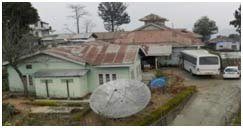 The State College of Teacher Education Kohima is the first Teacher Education Institution in the state established in the year 1975. It was first
The State College of Teacher Education Kohima is the first Teacher Education Institution in the state established in the year 1975. It was first
named as Nagaland College of Education (NCE) and later, after having recognized by the NCTE as a CTE,it was upgraded to College of Teacher Education (CTE); a status higher than College of Education, it came to be
known as Nagaland College of Teacher Education (NCTE). The change of College name was further required and the College is now called as State College of Teacher Education (SCTE). This institution is the lone CTE in the state. The college was assessed by NAAC in 2011 and had secured a ‘B’ Grade with a CGPA of 2.52.
Mission: Impacting Social Uplift through Responsive, Relevant and Reflective Teacher Preparation
Vision: Preparing Reflective Humane Professionals as Catalysts of change, Pro-actively engaged in Redefining process and practice of Education.
15, MOKOKCHUNG COLLEGE OF TEACHER EDUCATION
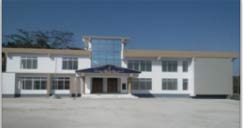 Mokokchung College of Teacher Education (MCTE) was established on 22nd Feb 2012 by the Government of Nagaland (Department of Higher Education), and is the second Secondary Teacher Education Institution in the State. The College is located at Yimyu, Mokokchung, in a campus area of 5 acres. The Administrative building, inaugurated in 2014, is presently being used for both Administrative and Academic purposes. The Academic Building was sanctioned during the Financial Year 2020-21 and the construction is ongoing. The College has been recognized under 2(f) of the UGC Act, 1956 since March 2021. The College is temporarily affiliated (Provisional) to Nagaland University and process of acquiring Permanent Affiliation is underway. Recognized by the National Council for Teacher Education (NCTE), New Delhi, it offers full-time regular B.Ed course of 2 (two) years, comprising of 4 (four) semesters.
Mokokchung College of Teacher Education (MCTE) was established on 22nd Feb 2012 by the Government of Nagaland (Department of Higher Education), and is the second Secondary Teacher Education Institution in the State. The College is located at Yimyu, Mokokchung, in a campus area of 5 acres. The Administrative building, inaugurated in 2014, is presently being used for both Administrative and Academic purposes. The Academic Building was sanctioned during the Financial Year 2020-21 and the construction is ongoing. The College has been recognized under 2(f) of the UGC Act, 1956 since March 2021. The College is temporarily affiliated (Provisional) to Nagaland University and process of acquiring Permanent Affiliation is underway. Recognized by the National Council for Teacher Education (NCTE), New Delhi, it offers full-time regular B.Ed course of 2 (two) years, comprising of 4 (four) semesters.
Vision:
- To enhance better quality Teacher Education Programme.
- The institution strives to prepare teachers to be competent human facilitators of teaching by enhancing qualitative improvement of Education.
16. NEW MODEL COLLEGE, MANGKOLEMBA
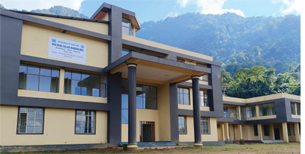 New Model College Mangkolemba is in Manglemba Town, a Sub-Division under Mokokchung district. This College is a nascent Arts College established by the Government of Nagaland only in the year 2023 with an initial enrolment of 13 students and teachers pulled out from some of the existing colleges, mainly from Fazl Ali College. Now the College is running with 6 Assistant Professors, including one contract and one Associate Professor as permanent teachers. Finally, 11 students have made to the first Semester Examination conducted from 20th November 2023. The College has a high potential of enrolment in the coming years as it covers three ranges under the district.
New Model College Mangkolemba is in Manglemba Town, a Sub-Division under Mokokchung district. This College is a nascent Arts College established by the Government of Nagaland only in the year 2023 with an initial enrolment of 13 students and teachers pulled out from some of the existing colleges, mainly from Fazl Ali College. Now the College is running with 6 Assistant Professors, including one contract and one Associate Professor as permanent teachers. Finally, 11 students have made to the first Semester Examination conducted from 20th November 2023. The College has a high potential of enrolment in the coming years as it covers three ranges under the district.
17. NEW MODEL COLLEGE, WAKCHING
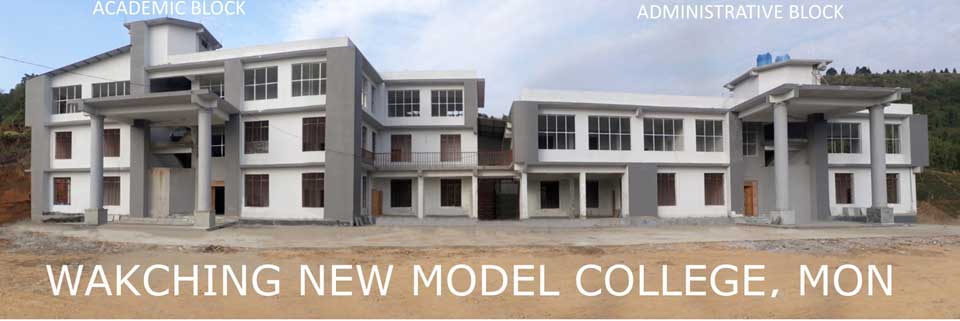 New Model College (Science Stream) at Wakching, Mon, was proposed to be set up during the 12th Five year plan under Rashtriya Uchchatar Shiksha Abhiyan (RUSA) of the Department of Higher Education, MHRD, with the mission of achieving the broad objectives of access, equity and excellence in higher education in the un-served and under-served Educationally Backward District. Subsequently under the RUSA Scheme (CSS) the construction of requisite infrastructure such as class rooms, library, laboratory, faculty rooms, hostels, toilet blocks and other essential requirements were completed. Thereafter, the Principal was appointed on 20th April 2023 and Administrative approval for opening the College was given on 19th May 2023 by the Higher & Technical Education Department Government of Nagaland. The Nagaland University Inspection requirements as due were undertaken on 26th May 2023 and the College started its first academic session with effect from 11th July 2023.
New Model College (Science Stream) at Wakching, Mon, was proposed to be set up during the 12th Five year plan under Rashtriya Uchchatar Shiksha Abhiyan (RUSA) of the Department of Higher Education, MHRD, with the mission of achieving the broad objectives of access, equity and excellence in higher education in the un-served and under-served Educationally Backward District. Subsequently under the RUSA Scheme (CSS) the construction of requisite infrastructure such as class rooms, library, laboratory, faculty rooms, hostels, toilet blocks and other essential requirements were completed. Thereafter, the Principal was appointed on 20th April 2023 and Administrative approval for opening the College was given on 19th May 2023 by the Higher & Technical Education Department Government of Nagaland. The Nagaland University Inspection requirements as due were undertaken on 26th May 2023 and the College started its first academic session with effect from 11th July 2023.









